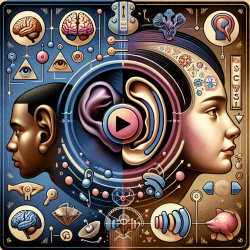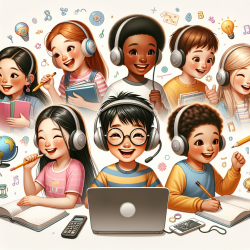Why Speech Isn’t as Special as We Thought: What Every Practitioner Needs to Know!
The perception of speech has long been considered a unique and complex human ability. However, recent research, as presented in the article "Speech is not special… again" by Carbonell and Lotto, challenges this notion. This blog explores how these findings can enhance the skills of speech therapy practitioners, particularly those working with children.
Understanding the Research
The research article delves into the debate about whether speech perception is a result of specialized processes or general cognitive mechanisms. The Motor Theory of speech perception suggests that speech is perceived through mechanisms related to speech production. However, recent studies indicate that general auditory processes and multisensory integration play significant roles in speech perception.
Key Findings
- Multisensory Integration: The study highlights the importance of integrating multisensory information in speech perception. For example, the McGurk effect demonstrates how visual cues can alter auditory perception.
- General Auditory Processes: Evidence suggests that non-speech sounds and even animals can exhibit characteristics of speech perception, such as Categorical Perception.
- Perceptual Learning: The research underscores the power of perceptual learning and its ability to adapt to various auditory contexts, challenging the idea of speech-specific processing.
Implications for Practitioners
For practitioners, these findings offer valuable insights into improving therapeutic outcomes:
- Embrace Multisensory Approaches: Incorporate visual and tactile stimuli in therapy sessions to enhance speech perception and production. This can be particularly beneficial for children who may respond better to a multisensory approach.
- Focus on General Auditory Skills: Develop activities that enhance general auditory processing skills, which can indirectly improve speech perception and production.
- Encourage Perceptual Learning: Design therapy sessions that promote perceptual learning through varied and context-rich auditory experiences.
Encouraging Further Research
While the current research provides significant insights, it also opens the door for further exploration. Practitioners are encouraged to stay informed about ongoing studies in multisensory integration and general auditory processing. By doing so, they can continue to refine their therapeutic approaches and contribute to the broader understanding of speech perception.
To read the original research paper, please follow this link: Speech is not special… again.










